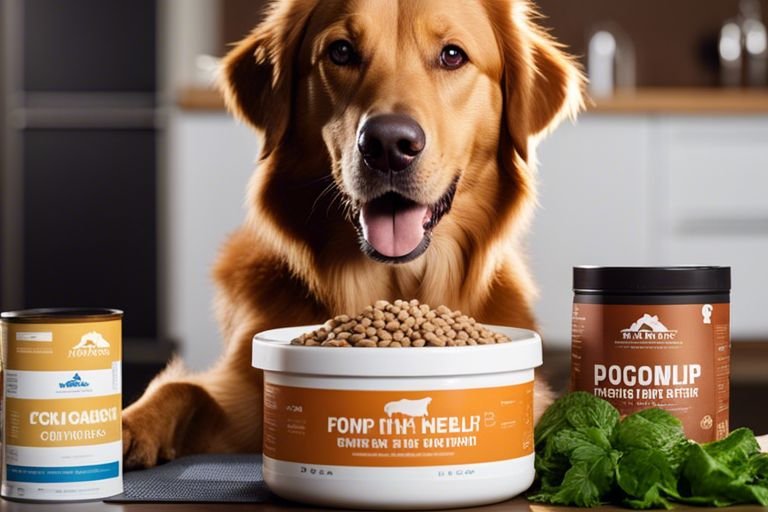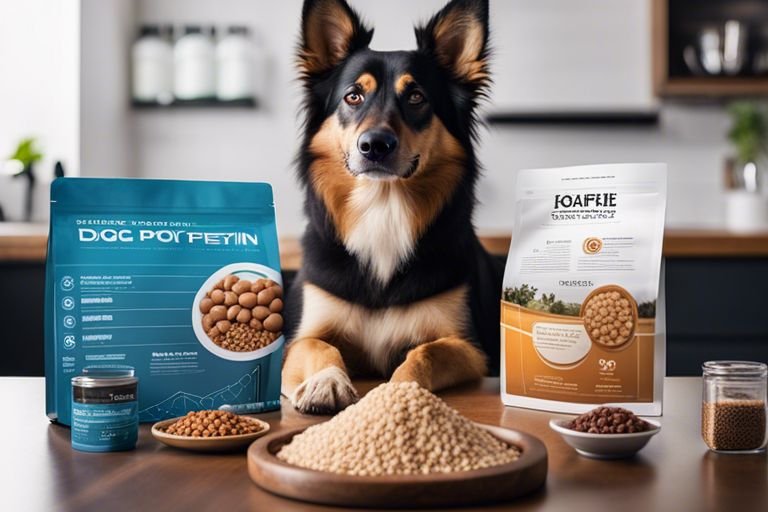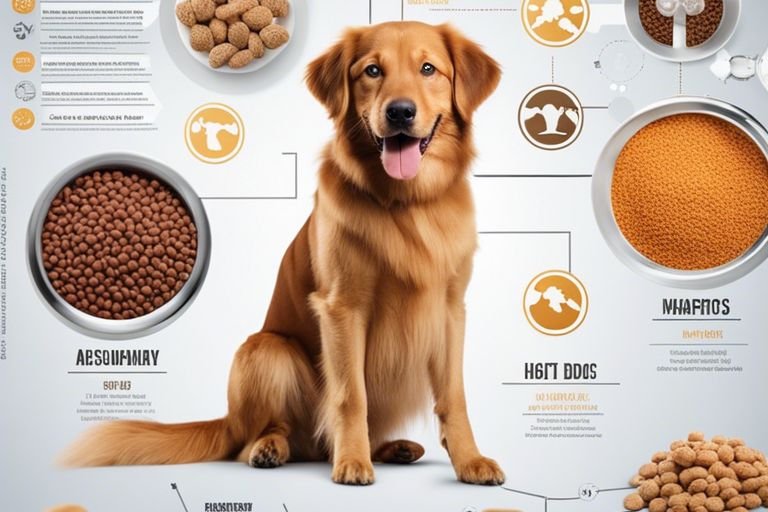The Science Behind High-Protein Dog Food And Its Impact On Canine Health

Protein is a crucial component in your dog’s diet, playing a vital role in their overall health and well-being. In this blog post, we will research into the science behind high-protein dog food and its significant impact on canine health. Understanding the importance of protein for your furry friend can help you make informed decisions when choosing the best diet to ensure a happy and healthy life for your beloved pet.
Key Takeaways:
- Protein is crucial for canine health: Protein is a crucial nutrient for dogs as it helps build and repair tissues, supports the immune system, and aids in digestion.
- High-protein dog food can support muscle development: Dogs with an active lifestyle or those needing to build muscle can benefit from high-protein diets to support their muscle growth and maintenance.
- Protein quality matters: The source and quality of the protein in a dog’s diet are important factors to consider. High-protein dog foods should contain protein sources that are easily digestible and provide crucial amino acids.
- Consult with a veterinarian: Before switching your dog to a high-protein diet, it is crucial to consult with a veterinarian to ensure it is suitable for your dog’s specific needs and health status.
- Balance is key: While protein is crucial, a balanced diet that includes the right amount of protein, fats, carbohydrates, vitamins, and minerals is crucial for overall canine health and well-being.

Understanding Protein in Dog Food
Importance of Protein in Canine Diets
One of the most crucial components of a dog’s diet is protein. Protein plays a vital role in building and repairing tissues, muscles, skin, and fur. It is necessary for maintaining a strong immune system, healthy metabolism, and overall well-being of your canine companion.
Different Sources of Protein
The protein in dog food can come from various sources such as animal meat, poultry, fish, eggs, and plant-based sources like soy and legumes. Each protein source offers different amino acid profiles and digestibility rates, which can impact how effectively your dog utilizes the protein for growth and maintenance.
Protein derived from animal sources is considered to be of higher quality for dogs due to its complete amino acid profile that closely matches their biological needs. Plant-based proteins can also be beneficial, especially for dogs with allergies or sensitivities to animal proteins.
Benefits of High-Protein Diets for Dogs
Muscle Development and Maintenance
Diets rich in high-quality proteins support muscle development and maintenance in dogs. Proteins are important for the growth and repair of muscle tissues, helping dogs maintain strong and healthy muscles throughout their lives.
Energy and Metabolism Enhancement
For dogs with high activity levels or those that require a boost in energy, high-protein diets can provide the necessary fuel. Protein is an efficient energy source that can help enhance metabolism and support the overall energy needs of active dogs.
This can be particularly beneficial for working dogs, athletic breeds, or dogs engaged in agility or endurance activities. High-protein diets can help sustain their energy levels and support their performance, ensuring they have the stamina and endurance to excel in their tasks.

Potential Risks and Considerations
Not all dogs have the same protein requirements, and exceeding these needs can have potential drawbacks. While protein is vital for muscle building and overall health, too much protein intake can lead to various issues. Studies have shown that excess protein can strain the kidneys, especially in dogs with preexisting kidney conditions. To learn more about the correlation between protein intake and kidney health, you can refer to Behavior & Protein: Does Protein in Dog Food Play a Role in ….
Kidney Health Concerns
On the topic of kidney health, it is important to note that high-protein diets may not be suitable for all dogs. For dogs with kidney issues or predispositions, excessive protein consumption can exacerbate these conditions. Consulting with a veterinarian is crucial to determine the appropriate protein levels for dogs with kidney health concerns.
Appropriate Protein Levels for Different Dog Breeds and Ages
An vital aspect of providing a balanced diet for your dog is considering the appropriate protein levels based on their breed and age. Different dog breeds and life stages have varying protein requirements. For instance, puppies and active breeds may require higher protein levels for growth and energy, while senior dogs or less active breeds may need a protein-controlled diet to prevent excessive weight gain and strain on organs.

Choosing the Best High-Protein Dog Food
Evaluating Ingredients and Nutrient Profiles
To ensure you are choosing the right high-protein dog food for your furry friend, it is vital to carefully evaluate the ingredients and nutrient profiles. Look for high-quality sources of protein, such as real meat, and make sure the food provides a balanced mix of vital nutrients for your dog’s overall health and well-being.
Recommendations from Veterinary Professionals
One crucial aspect of selecting the right high-protein dog food is seeking recommendations from veterinary professionals. Veterinarians can provide valuable insights into your dog’s specific dietary needs and help you choose a high-protein formula that aligns with their health requirements, age, and activity level.
When considering recommendations from veterinary professionals, it’s important to consult with your veterinarian before making any significant changes to your dog’s diet. They can offer personalized advice tailored to your dog’s individual needs and health conditions.
Conclusion
So, it is clear that high-protein dog food can have a significant impact on canine health, providing important nutrients for muscle growth, weight management, and overall well-being. By understanding the science behind this dietary choice, pet owners can make informed decisions to ensure their furry companions lead healthy and active lives.
FAQ
Q: What is high-protein dog food?
A: High-protein dog food is a type of dog food that contains a higher percentage of protein than traditional dog foods. This can help support the energy and muscle needs of active dogs.
Q: How does high-protein dog food impact canine health?
A: High-protein dog food can help support healthy muscle development, provide energy for active dogs, and promote a strong immune system. It is crucial for overall canine health and well-being.
Q: Is high-protein dog food suitable for all dogs?
A: High-protein dog food is usually more appropriate for active dogs, working dogs, or dogs with high energy levels. It may not be suitable for senior dogs or dogs with certain health conditions, so it is crucial to consult a veterinarian before making any dietary changes.
Q: What are the potential benefits of feeding my dog high-protein dog food?
A: Feeding your dog high-protein dog food can lead to increased muscle mass, improved energy levels, better digestion, and a shinier coat. It can also help with weight management and overall health.
Q: Are there any risks associated with feeding my dog high-protein dog food?
A: While high-protein dog food can have many benefits, it is crucial to ensure that your dog is getting the right balance of nutrients. Too much protein can lead to weight gain, kidney issues, or other health problems. It is crucial to consult with a veterinarian to determine the appropriate amount of protein for your dog’s individual needs.




